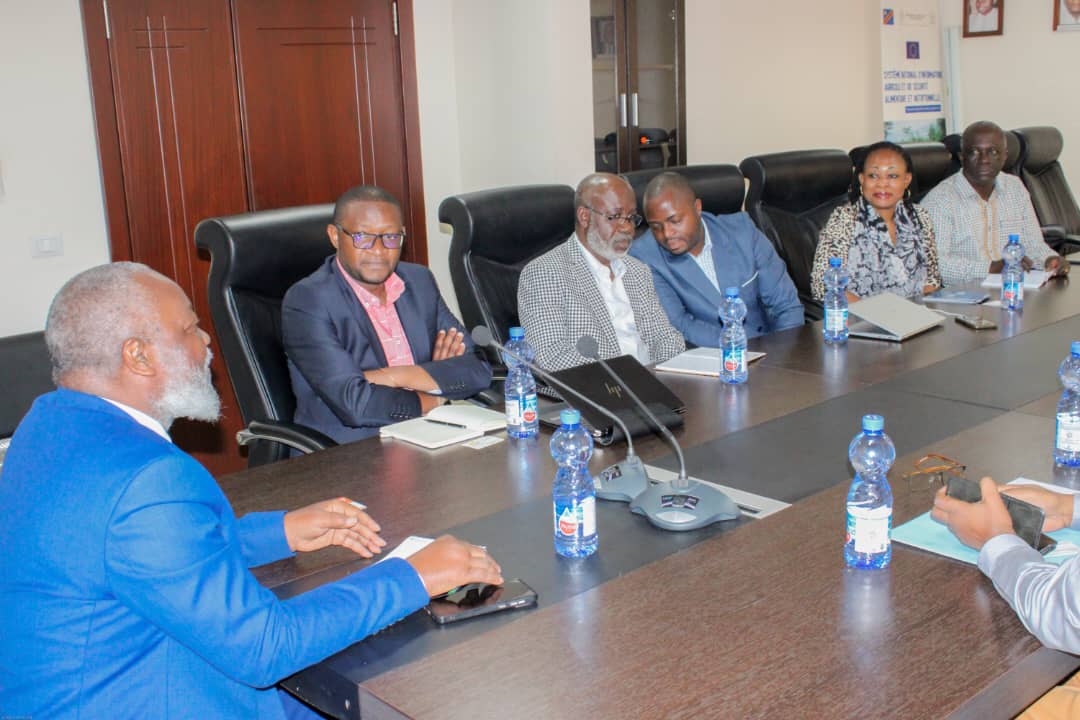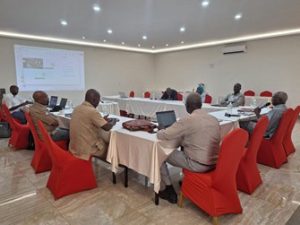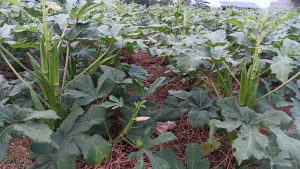TAAT engages partners on food systems transformation in DR Congo
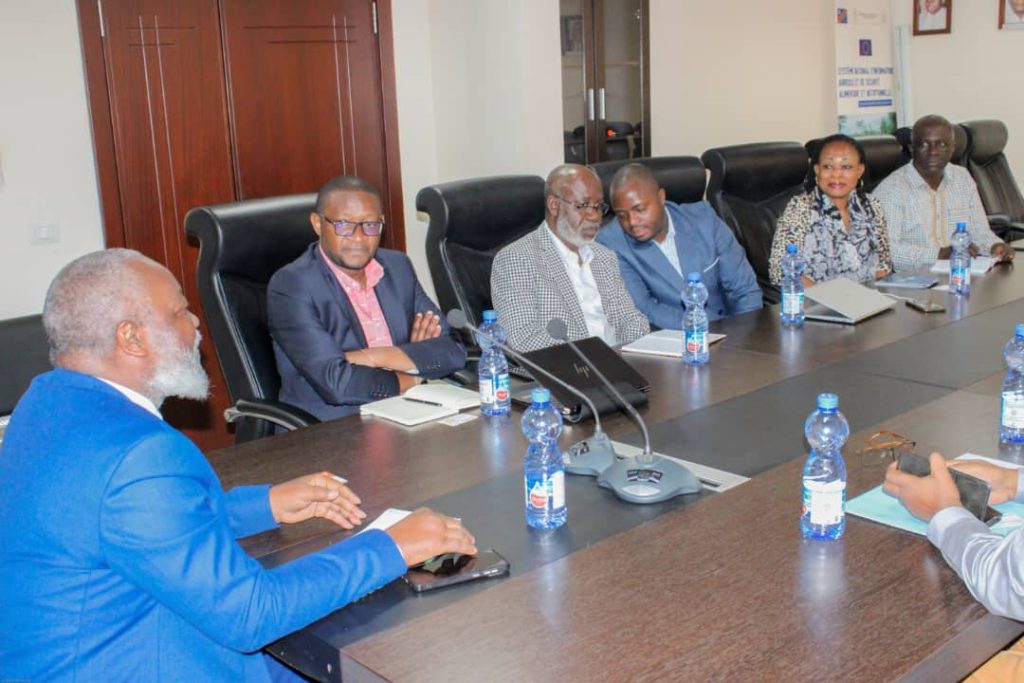
A high-powered team of experts from the Technologies for African Agricultural Transformation (TAAT) were in the Democratic Republic of Congo (DRC) from the 27th to the 31st of March 2023 to mobilise an extensive partnership network capable of deepening ongoing efforts at food systems transformation in the country.
Led by the Head of the TAAT Clearinghouse, Dr Solomon Gizaw, the team, which comprised leaders of TAAT Cassava, Rice, Maize and Youth in Agribusiness compacts including Communications, and Monitoring and Evaluation experts from the Clearinghouse, met representatives of the government, the African Development Bank, and development partners like the African Agricultural Leadership Institute (AALI).
The TAAT team had fruitful and strategic deliberations with the leadership of AALI in the light of the institute’s partnership agreement to engage African leadership at the highest level on mainstreaming TAAT technologies into funded projects and programmes across the continent.
While in the DRC, the team met with the leadership of the Ministry of Agriculture represented by Engr José Ilanga Lofanga, the Secretary General, the National Seed Service (SENASEM), National Extension Service (SNV), the Support Unit for the Integrated Emergency Community Development Program (CAPUIDC), and the leaders of the AfDB-funded “African Emergency Food Production Facility” (also known as PURPA in French), the “Support Project for the Development of Agricultural Value Chains in 6 Provinces” (also known as PADCA-6P), and the “Support Project for the Integrated Development of the Rural Economy” (also known as PROADER in French).
Some of the outcomes from this meeting include the implementation of the training of seed inspectors identified by SNV and SENASEM in Kalambo, continuous engagement with SENASEM and SNV to deploy high yielding varieties of country priority crops and introduction of hybrid (maize and rice) and biofortified (cassava) varieties to enhance production and improve nutrition, and the development of a roadmap for stimulating institutional capacity development and strengthening the seed system as a means to enhance agricultural production in DRC.
The team equally met with the leadership the AfDB and the International Institute of Tropical Agriculture (IITA) Country Offices for the DRC. Mr. Solomane Koné, the AfDB Country Representative for DRC affirmed the bank’s readiness to support the DRC in its agricultural transformation agenda and urged TAAT and partners to explore areas capable of yielding quick wins that will pave the way to mid and long-term impact achievements.
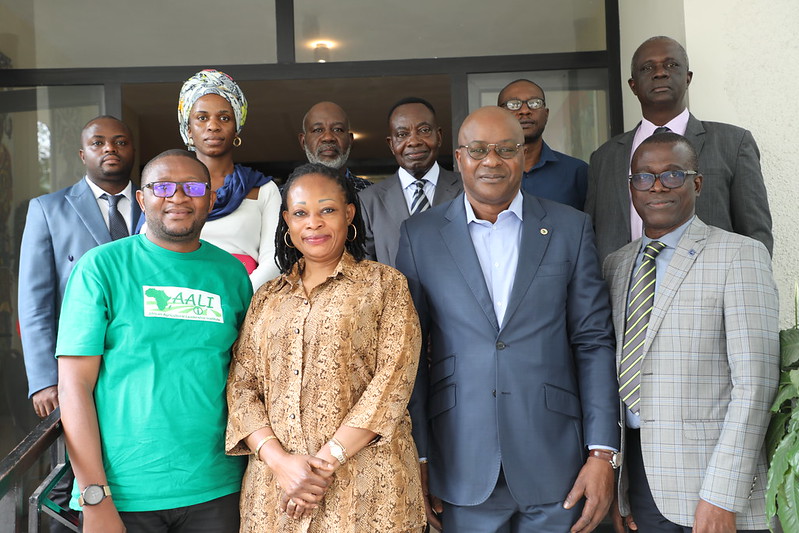
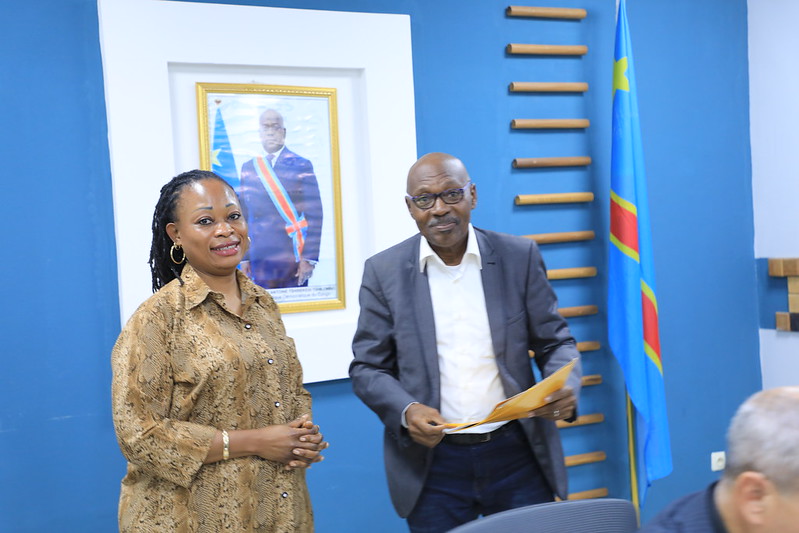

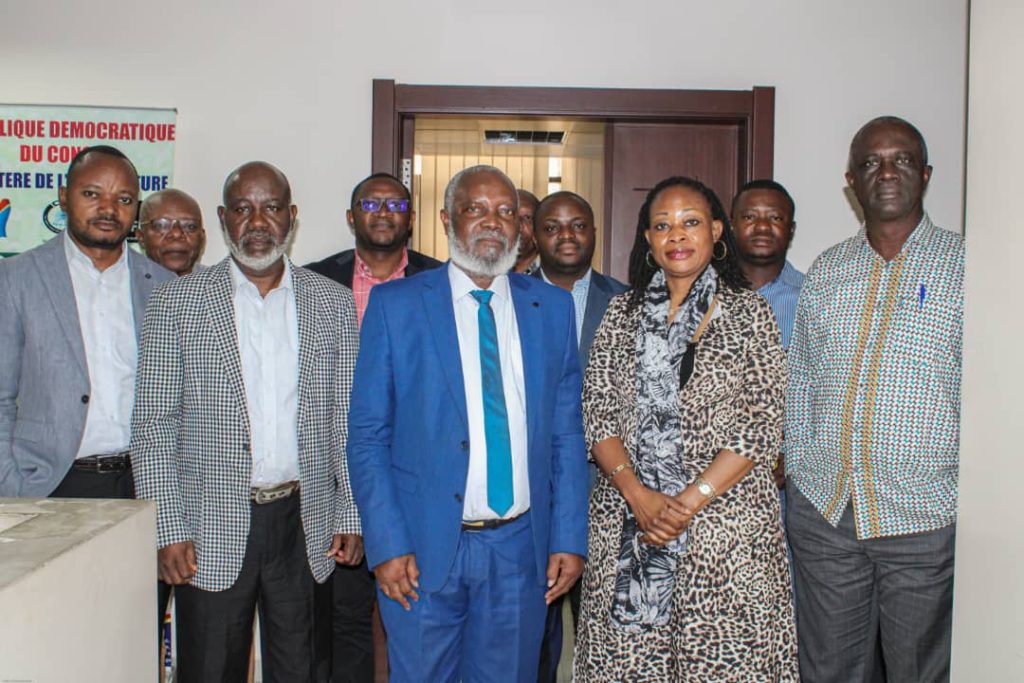
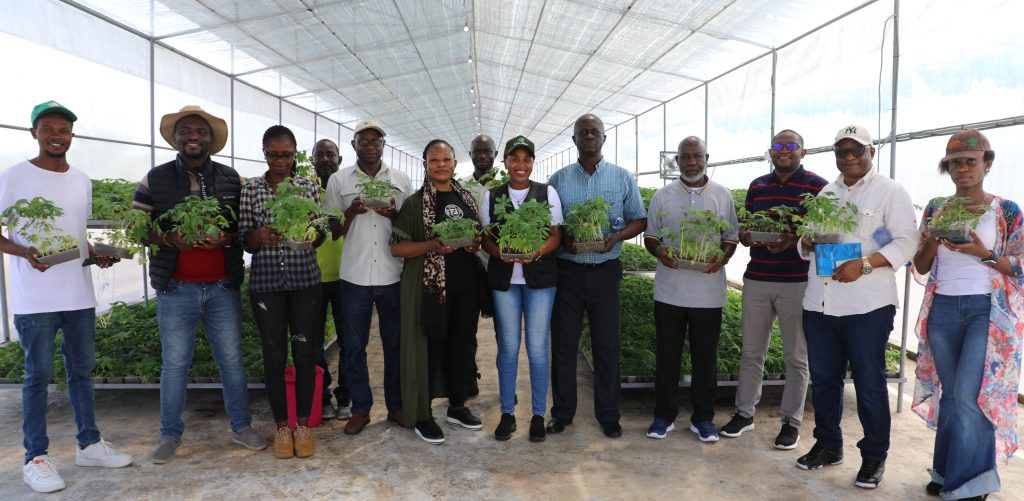
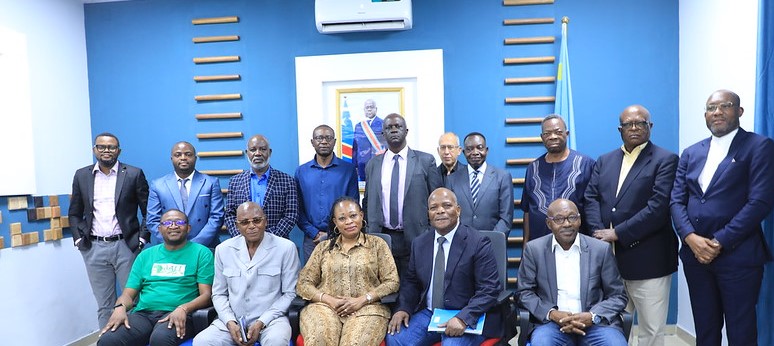
The team rounded up their engagements in the DRC with a field visit to the Citrus Research Center (CERAGRU) in the urban-rural municipality of N’Sele, Kinshasa. The team expressed satisfaction with the partnership with CERAGRU which has translated into the establishment of a laboratory for the Semi Autotrophic Hydroponics (SAH) technology, deployed by the TAAT Cassava Compact.
The SAH laboratory at CERAGRU was made possible through a partnership between TAAT, IITA and the Agriculture Transformation Agenda (ATA) project initiated by President Felix Tshisekedi. The first production cycle of cassava from the centre is located at the Mongata field site managed by IITA in partnership with a private sector firm, BAB Ltd and AALI.
According to Dr Adebayo Abass, TAAT Cassava Compact Leader, the achievements recorded in DR Congo through the deployment of this technology are in line with the objectives of TAAT’s intervention in cassava. These objectives, according to the leader, include increasing farmers’ access to planting materials of virus-free, modern cassava varieties, raising farm-level productivity, improving the efficiency of processing, increasing market opportunities for smallholders, and catalysing private-sector investments.
TAAT is an integral part of the Bank’s Feed Africa strategy that is harnessing elite scientific research/technologies and disseminating same at scale to African farmers. It’s main objective is to improve the business of agriculture across Africa by raising agricultural productivity through the deployment of proven and high-performance agricultural technologies, mitigating risks and promoting diversification and processing in key agricultural value chains.
Recent Stories
Related Stories
- BENIN: TAAT and partners convene stakeholders for a seed roadmap
- TAAT and the imperatives of food systems transformation in Benin
- TAAT in the DRC: Towards an efficient seed system and Technology Scale-up for Agricultural Transformation
- COTE D’IVOIRE: TAAT and Partners convene stakeholders for a seed roadmap
- TAAT facilitates seed roadmap to boost agricultural productivity in Benin


